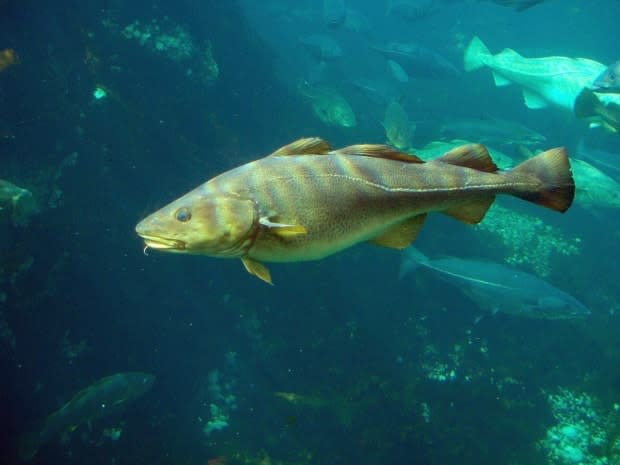FFAW calling for rejection of possible shutdown of south coast cod fishery

The union representing workers in Newfoundland and Labrador's fishery is calling for the rejection of a possible closure to the 3Ps cod fishery on the island's south coast, but Ottawa says no decisions have been made yet.
In a media release, the Fish, Food and Allied Workers (FFAW) called on federal Fisheries Minister Bernadette Jordan to reject the mandate of a possible closure after a Fisheries and Oceans Canada (DFO) assessment in 2020 indicated that the biomass index increased in 3Ps and predicts further growth in 2021 for the cod stock. The FFAW also cited the DFO study as finding fishing mortality has been at "very low levels" due to reduced quotas for 3Ps.
The FFAW said millions of dollars worth of cod is landed in the area on an annual basis, and inshore fish harvesters rely on cod to support their businesses. The 3Ps subdivision stretches from the eastern side of Placentia Bay, near the Avalon Peninsula, to Burgeo, on the island's southwest coast, as well as a small section controlled by St-Pierre-Miquelon.
"There's so many people in that area that depend on the fishery. I mean, thousands of people directly, hundreds of enterprises. Some people don't have any other fisheries, and then there's plants like the one in Arnold's Cove that's cod only," union president Keith Sullivan told CBC News on Sunday.
"So the FFAW members certainly are not accepting a decision that's unnecessary and will do so much damage to people who have already sacrificed a lot with very low quotas already."
Icewater Seafoods Ltd. in Arnold's Cove employs 225 people, according to the union.
The FFAW also takes aim at the the seal population along the south coast of the province, saying it has grown to record levels and seals are known to consume large amounts of cod, as well as spread parasites among the fish. The FFAW said the seals in the area are part of a continued migration from Nova Scotia and Maine.
The union said there have been no efforts by the federal government to limit seal predation on the cod stocks.

"The cuts that harvesters have already taken, 55 per cent last year, massive decreases in their catch than in previous years, and with the science we saw this year, we expected that there would be a status quo certainly and then carry on and assess this," Sullivan said.
"There's so many seals in these areas. There's about 365 islands around Burgeo and it's hard to go to many of these islands and rocks and not see seals on. That's not something that was there 20 years ago. This is the major problem in the area that's been ignored."
In 2020, the 3Ps cod quota was set at 2,691 tons.
The union said a closure of the cod fishery would affect other fisheries, and result in related businesses closing, lower earnings, further rural outmigration, social challenges, bankruptcies and a heavier reliance on provincial and federal support programs.
Decision to come
In statement to CBC News, the federal fisheries minister's office said, "the minister makes all fisheries management decisions based on the best available science, which currently shows that 3Ps cod is well below the limit reference point, with the spawning biomass declining this year."
"The Canada-France Advisory Committee will begin meetings this week, where Canada will negotiate an agreement with France (in respect of St-Pierre-Miquelon) for our co-managed stocks. The final fisheries management decision will be an outcome of these negotiations."
Sullivan said he believes Jordan is missing some important information necessary to make an informed decision. He said has already spoken with Premier Andrew Furey and members of parliament including federal Natural Resources Minister Seamus O'Regan.
"We've got to make sure that the minister gets the proper information. I think there can be a reasonable way forward here and the minister just got to get the facts," Sullivan said.
"First of all, they have to know how many people are relying on this resource. This impacts thousands of people, but also the science on this, the indicators weren't bad. Decisions got to be made with the best science available."
Also in response, O'Regan told CBC News nothing has been finalized yet.
"No final decision has been made and a decision would only be made with significant consultation with all interested parties," he said in an email.
The provincial Department of Fisheries said in an emailed statement that it "continues to advocate to the federal government that any management decisions pertaining to our key fish stocks must be grounded on fact-based reliable science."
"The effective and sustainable management of Newfoundland and Labrador's fishing industry has and will remain a top priority for government," reads the statement.

